Featured articles
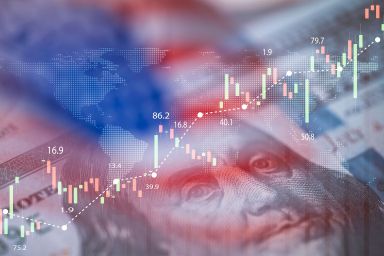
Why Michael Burry just sold all his tech stocks
Michael Burry has just exited a nearly $100 million position on Nvidia that he opened earlier this year.
14:42, 9 October 2025

Gold forecast: Third-party price targets
Gold (XAU/USD) is currently trading at $3,982.94 (as of 6:12pm UTC, 7 October 2025), after briefly crossing $4,000 per ounce for the first time during the session.
14:43, 9 October 2025

How does Elon Musk impact cryptocurrency prices?
In cryptocurrency markets, few individuals command as much attention as Elon Musk. The CEO of Tesla and SpaceX’s tweets, Tesla and Dogecoin announcements, and public statements can trigger periods of heightened volatility, with shifts in buying and selling pressure across digital assets.
13:29, 30 September 2025

IBM stock forecast: Third-party price targets
IBM (IBM) is trading at $284.62 as of 3:23pm UTC on 20 October 2025, approaching its intraday high of $285.25 and up from the day's low of $272.14.
an hour ago

SAP SE stock forecast: Third-party price targets
SAP SE (SAP) is trading at $233.80 as of 9:24am UTC on 20 October 2025, with intraday moves between a low of $227.45 and a high of $234.40. The share price remains near the upper end of this session’s range.
2 hours ago

Quantum Computing Stocks: A technological revolution and a market frenzy
Quantum computing stocks have surged as investors race to invest in the potentially revolutionary technology.
6 hours ago

Netflix Q3 Earnings Preview: Ad growth in focus
Netflix will report earnings on October 21 with focus on ad revenue after moving away from subscriber data
07:51, 21 October 2025

Trading the Dow 30 Ahead of More Earnings
Last week was mostly a story of recovery shaking off a couple key negative factors, but it’s about to get more interesting with more earnings this week.
06:14, 20 October 2025
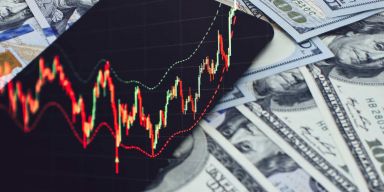
Volatile Trading Ahead of October Option Expiry as Dollar Rally Falters
Volatility in the stock market remained very high on Wednesday, 15 October, with sharp moves in both directions as equities searched for a clear path forward ahead of October’s option expiry.
11:53, 16 October 2025
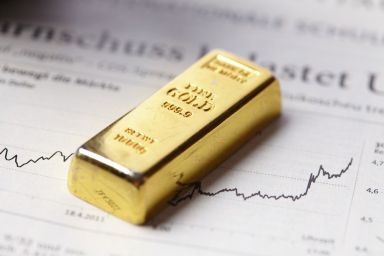
Market Analysis: Gold, S&P 500, CAC 40
Markets continue to weigh the possibility of further escalation in the US/China trade dispute but optimism continues as earnings remain strong
10:44, 16 October 2025
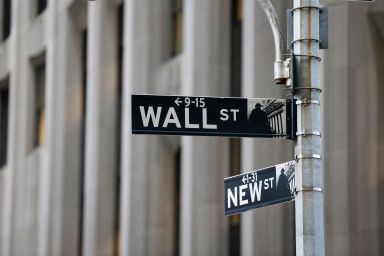
Trading the S&P 500 After Earnings from the Financial Heavyweights
Impressive results have helped it overcome trade worries and an ongoing shutdown for now, but the technicals are still conflicted on the shorter-term daily time frame due to last Friday’s plunge.
07:51, 16 October 2025

US crude outlook: sanctions vs. surplus
Oil prices jump higher this week as the US threatens direct sanctions on Russian producers but the supply outlook remains overcrowded
8 hours ago

Trading gold's volatile technical overview
The technical overview shifted to volatile before last Tuesday’s plunge putting breakout strategies in play, while in sentiment fresh longs remain exposed.
07:46, 23 October 2025

UK inflation holds at 3.8%: markets price earlier BoE cuts as precious metals cool
Consumer inflation remained unchanged at 3.8% in September despite forecasts of a rise, leading markets to price in higher odds of rate cuts from the BoE
12:13, 22 October 2025
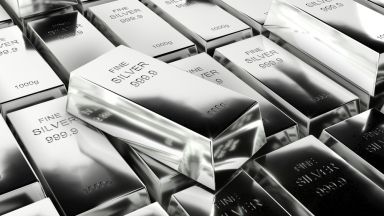
Gold and Silver face heavy selloff as trade tensions between US and China ease
Precious metals are facing a heavy selloff on Tuesday as Trump confirms that he will meet with Xi Jinping later this month, calming some of the nerves around trade tensions
09:31, 21 October 2025

Trading gold's volatile technical overview
The technical overview shifted to volatile before last Tuesday’s plunge putting breakout strategies in play, while in sentiment fresh longs remain exposed.
07:46, 23 October 2025

UK inflation holds at 3.8%: markets price earlier BoE cuts as precious metals cool
Consumer inflation remained unchanged at 3.8% in September despite forecasts of a rise, leading markets to price in higher odds of rate cuts from the BoE
12:13, 22 October 2025

Market Mondays: rare earths, tariff risk and where the next moves may come from
Renewed tensions between China and the US weigh on market sentiment, with gold and silver receiving another boost
11:23, 13 October 2025
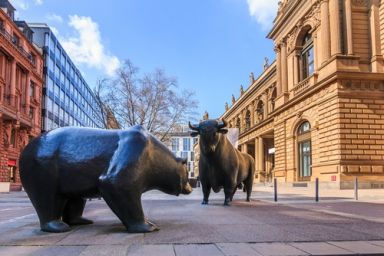
Wall St steady as ceasefire tempers risk, gold consolidates
Traders react with cautious optimism to the news of a ceasefire between Hamas and Israel as the US government shutdown continues to cloud the outlook for rates
11:16, 10 October 2025

Ripple price prediction: Third-party outlook
Ripple (XRP) was trading at $2.41 as of 11:02am UTC on 21 October 2025, after moving within a daily range of $2.37–$2.53.
4 hours ago
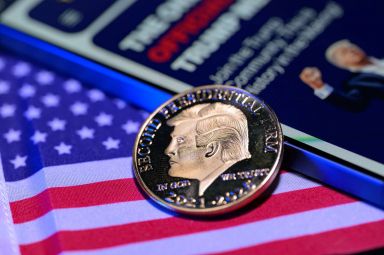
Trump coin price prediction 2025-2050: Third-party TRUMP insights
Trump Coin (TRUMP) is trading at $5.815 as of 9:37am UTC on 21 October 2025, testing the lower end of its intraday range of $5.8150–$6.0354. The Solana-based memecoin has declined from early October levels, with prices consolidating below the $6.00 threshold after a volatile third quarter.
5 hours ago

Pi Network coin price prediction 2025-2050: Third-party price target
Pi Network (PI) is trading at $0.2018 at 8:56am UTC on 21 October 2025, after moving within an intraday range of $0.2019 to $0.2086.
6 hours ago

Dogecoin price prediction: Third-party outlook
Dogecoin (DOGE) is trading at $0.1911 as of 10:00am UTC on 22 October 2025, near the lower end of its intraday range of $0.1911–$0.2052.
7 hours ago
